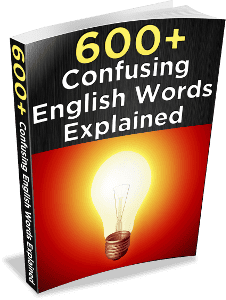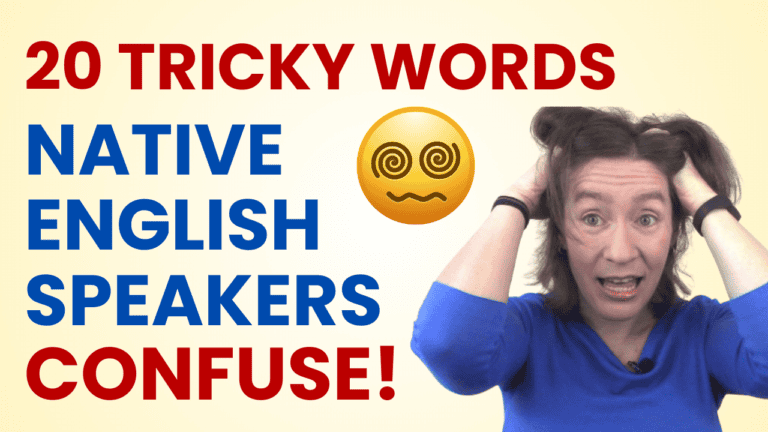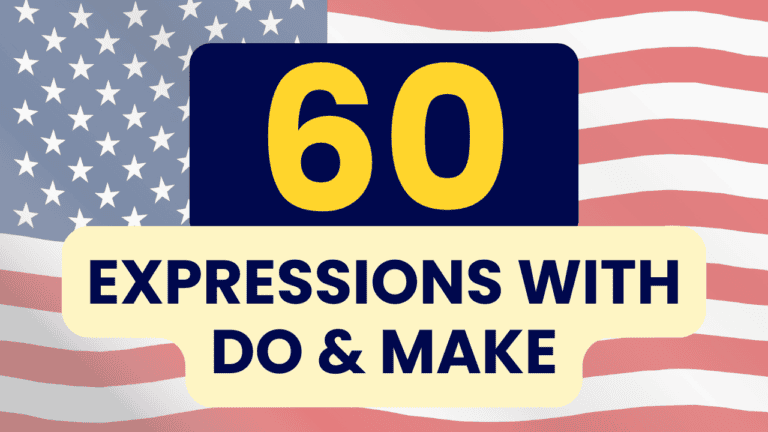 This is a free sample from the e-book 600+ Confusing English Words Explained. It will help clear up your doubts about how to use English words correctly, so that you can speak and write more confidently. Click here for more information!
This is a free sample from the e-book 600+ Confusing English Words Explained. It will help clear up your doubts about how to use English words correctly, so that you can speak and write more confidently. Click here for more information!
Adjectives are words that describe nouns.
Adverbs are words that describe verbs.
Unfortunately, it’s easy to confuse them!
Here’s an example with easy (adjective) and easily (adverb):
- The English test was easy.
- I easily finished the English test in 45 minutes.
You can see that easy describes the test (n.) whereas easily describes the action of finishing (v.) the test.
A lot of adjectives and adverbs have the same meaning – for example, easily means “an action done in an easy way.”
However, there are exceptions – let’s learn some of them!
late / lately
Late can be an adjective or an adverb that means after the correct time.
- I’m not hungry because I had a late lunch. (adjective)
- He slept late and missed his first class. (adverb)
Lately is an adverb that means the same as recently.
- I haven’t studied a lot lately. Work has been busy for the past couple weeks.
hard / hardly
Hard can be an adjective or an adverb – and the adjective form has two meanings!
- This book is too hard for me. I can’t read it. (hard = adjective = difficult)
- This mattress is too hard. I can’t sleep. (hard = adjective = opposite of “soft”)
- She’s working hard to finish the project by tomorrow. (hard = adverb = intensely)
Hardly has a completely different meaning. It means “almost not.”
- We have a bad connection – I can hardly hear you. (= I almost can’t hear you)
most / most of / mostly
Most or most of (adjective) means “the majority, the greater part.”
- Most people like the country’s president. (= more than 50% of the people)
- Most of the students in the class are nice. (= more than 50% of the students)
Most as an adverb means “to the greatest degree” – it is used to form the superlative:
- She’s the most popular girl in school. (= more popular than EVERYONE else)
- This is the most confusing chapter in the book.
(= more confusing than ALL the other chapters)
Mostly (adverb) means “mainly, generally, usually.”
- We mostly go to dance clubs, but sometimes we go to a cafe.
(= we usually go to dance clubs) - I’ve mostly dated athletes; I love women who play sports.
(= I’ve mainly dated athletes)
Learn more: 30 advanced adverbs









